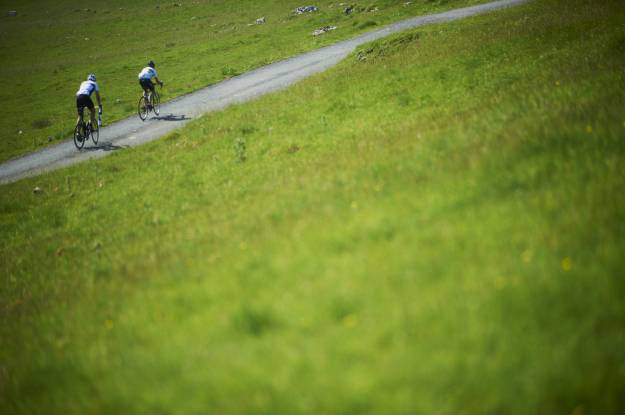British Cycling has today published its strategy to 2024 following record-breaking success at the Tokyo Olympic and Paralympic Games, supporting the organisation to grow the sport and enable more people within its communities to discover cycling.
With a focused purpose to Lead our sport, inspire our communities, the strategy will guide the organisation’s work through to the Paris 2024 Olympic and Paralympic Games, while supporting the development of the sport’s grassroots. Across seven priority areas key targets include:
- Growing the organisation’s membership to 250,000.
- Increasing by 20% the number of cycling clubs and groups and the young people riding in them.
- Creation of a new development plan to support non-Olympic and Paralympic discipline.
- Broadening the range of commercial partners working with British Cycling.
- Increasing representation of disabled people, people from diverse ethnic communities, LGBTQI people and people from lower income households within cycling.
Great Britain topped the cycling medal table at both the Olympic and Paralympic Games this summer, surpassing the total number of medals won at each of London 2012 and Rio 2016, while ground-breaking successes in mountain biking, BMX and BMX freestyle highlighted the team’s breadth of talent across the disciplines.

In tandem with this success, over recent years the organisation surpassed its ambitious target to get one million more women cycling, while its societal partnership with HSBC UK inspired two million more to get on their bikes. Growing from 14,000 at the turn of the millennium to almost 150,000 today, the organisation continues to work tirelessly for its members, with advocates including Policy Adviser Chris Boardman and Policy Advocate Dame Sarah Storey leading the charge for safer roads for cycling.
British Cycling’s independent chair, Frank Slevin, said: “It brings me great pride to present a new purpose and strategy for British Cycling today, guiding our path to Paris and a vibrant, prosperous future for our organisation.
"Since beginning my tenure as Independent Chair in January 2018 we have introduced considerable changes to the ways in which we govern our sport and activities, welcomed new members to our Executive Leadership Team and board of directors, and made great strides towards strengthening our diversity and connection with the grassroots of the sport.
“With our new strategy in place we now have an excellent platform to build from, and I and the Board look forward to supporting the organisation and its leadership team in bringing it to fruition.”
The new strategy will build on the foundational work already undertaken over the past 12 months, through the publication of long-term plans to support the development and growth of each of the seven cycling disciplines, and the organisation’s first holistic strategy for equality, diversity and inclusion.

After nine months as CEO of British Cycling, Brian Facer is now driving a new course for the organisation towards Paris and beyond. He said:
“As another incredible summer of cycling draws to a close, today I’m delighted to present a new purpose, strategy and vision for British Cycling, with the ambition of extending our proud history of medal success, renewing our commitment to the grassroots of the sport and making our organisation more relevant, inclusive and familiar to Britain’s communities than ever before.
“Whether through the stand-out successes we’ve seen in BMX, freestyle and mountain biking, our ground-breaking partnerships or our commitment to embedding diversity in everything we do, we’ve already taken great strides towards becoming a more forward-looking, dynamic and welcoming governing body. We will always take pride in leading our sport by nurturing the good health of each of our disciplines, and I now truly believe we are on the cusp of an exciting new era not just for British Cycling but for everybody who rides a bike.
“This strategy is the product of more than 10,000 written submissions and over 80 roundtable discussions, and we’re incredibly thankful to all those who have contributed, and to our members, volunteers, partners and funders for their vital and ongoing support.”
You can read the strategy here.









